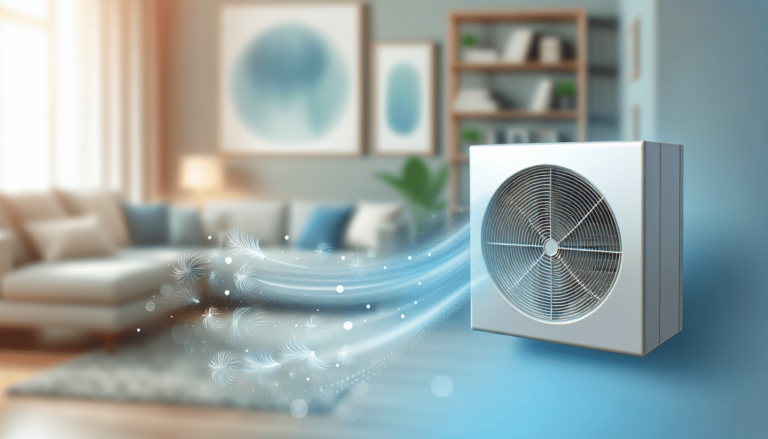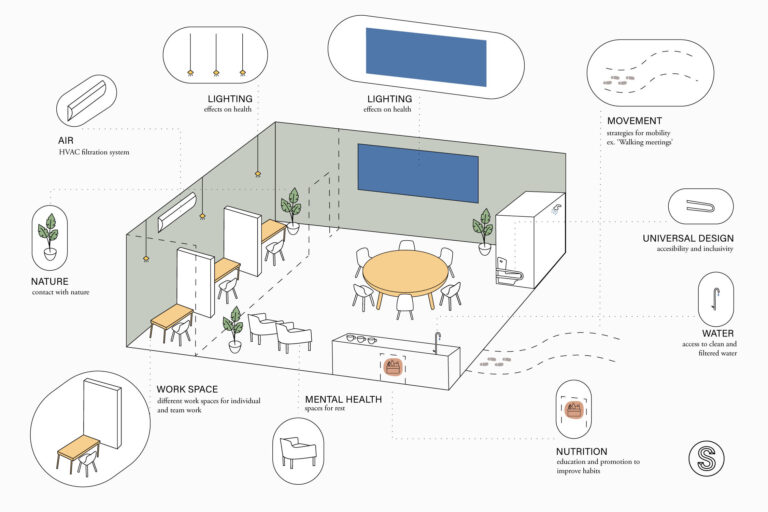

HVAC Services
Get Professional Repairs From The Area's Trusted HVAC Technicians. Ask About Our Services! We Offer Professional Heating & Cooling System Repairs And Guarantee Long-Lasting Results.
Got Question? Call us: (850) 678-2665Financing
HVAC And Health: Link Between Temperature And Well-being
Discover how HVAC systems influence your well-being, affecting physical and mental health. Dive into the science of temperature and learn to optimize for better life.

Have you ever wondered how the temperature around you impacts your well-being? You might be surprised to learn that the HVAC (Heating, Ventilation, and Air Conditioning) systems we often take for granted in our homes and workplaces have a significant influence on our health. These systems play a crucial role not only in maintaining comfort but also in enhancing or potentially diminishing our physical and mental health.
The Integral Role of HVAC Systems
In modern life, HVAC systems are as essential as salt to a good meal. They’re quietly whirring in the background, their sole ambition to make your environment just right—not too hot, not too cold. But their function extends beyond mere comfort; they form a bridge between temperature regulation and your overall health.
The Comfort Factor
We all cherish the feeling of stepping into a cozy, warm room during the biting cold winters or the refreshing coolness provided by air conditioning in the throbbing summer heat. HVAC systems are designed to regulate indoor climates, offering a refuge from extreme outdoor temperatures. This simple act of heating or cooling can make significant contributions to physical health.
Emotional and Psychological Impacts
The indoor climate can affect not only how you feel physically but also emotionally and psychologically. Temperature extremes, whether too high or too low, can lead to irritability, stress, and sometimes even exacerbate feelings of depression. A well-adjusted HVAC system can thus play the role of an emotional balm, ensuring that mood remains as balanced as room temperature.
The Science of Temperature and Health
The link between temperature and health is quite fascinating and deeply rooted in our biology. Let’s delve into how temperature affects different aspects of our health and what role HVAC systems play in this context.
Temperature and Physical Health
When it comes to physical health, temperature influences myriad bodily processes. For instance, extreme heat can cause heat exhaustion or heat strokes, while extreme cold might lead to hypothermia. Thus, maintaining a stable indoor temperature isn’t just a matter of comfort—it’s essential for preventing temperature-related health issues.
Temperature and Sleep
The temperature of your sleeping environment can significantly influence sleep quality. The body’s core temperature naturally dips during sleep, and a room that’s too hot or too cold can disrupt this process, leading to restless nights and groggy mornings. A well-calibrated HVAC system assists in maintaining the optimal sleep environment, promoting better rest and overall wellbeing.
Allergens and Air Quality
Humidity, dictated by temperature control, also affects the presence of allergens and the quality of indoor air. Elevated humidity levels can encourage the growth of mold and dust mites, while overly dry conditions may lead to respiratory issues. Here, HVAC systems become crucial players in regulating humidity, thus aiding in maintaining an allergen-minimal environment.

Optimizing HVAC for Health
Your HVAC system is not just a machine; it’s more like a less-complicated, non-judgmental family member, quietly working in the background. Here’s how you can ensure it’s performing optimally for your health.
Regular Maintenance
Regularly servicing your HVAC system can prevent many potential problems. Maintenance checks include cleaning filters and vents, checking for refrigerant leaks, and ensuring that the thermostat is operating correctly. A well-maintained system is more energy-efficient and effective in keeping your environment healthy.
Smart Temperature Control
With the advancement of technology, you can now take HVAC control to the next level through smart thermostats. These allow for precise temperature settings and can even adapt to your schedule, ensuring optimal temperatures precisely when needed. This further aids in minimizing health threats posed by weather fluctuations.
Air Quality and Filtration
Good air quality is paramount. Modern HVAC systems can be equipped with high-efficiency particulate air (HEPA) filters that capture tiny particles, including undesirable allergens and bacteria, thereby improving indoor air quality and enhancing health.
The Challenges of HVAC Systems
While HVAC systems bring an array of benefits, they are not without their challenges. Understanding these can help mitigate potential downsides.
Energy Consumption
HVAC systems can be significant energy hogs. Extensive use contributes not just to high electricity bills but also increases your carbon footprint. Finding energy-efficient models or integrating your system with renewable energy sources, such as solar panels, can be great alternatives for environmentally conscious and economically savvy individuals.
Maintenance Costs
While the benefits of regular maintenance are undeniable, the costs can sometimes be off-putting. However, considering the potential expenses due to breakdowns or inefficient operation, regular servicing emerges as a wise investment.
Noise Levels
Some HVAC systems, particularly older models, can be noisy, disrupting indoor tranquility and potentially affecting mental well-being. Investing in a modern, quieter system can be beneficial, creating a more serene environment.

Embracing HVAC Systems as Health Partners
When viewed through the lens of health and wellness, HVAC systems emerge as unlikely allies in our quest for a healthier life. Through effective temperature regulation, humidity control, and air quality management, these systems do more than keep us comfortable—they influence our health in profound ways.
Establishing Balance
Temperature, like most things in life, is all about balance. Striking the right temperature can prevent temperature-induced health problems and improve overall wellbeing without excessive energy consumption.
Enhancing Productivity and Creativity
It is noteworthy that your immediate environment significantly affects productivity and creativity. A well-maintained HVAC system can help create a workspace that’s neither too warm to induce sluggishness nor too cold to cause discomfort. Consistent, comfortable temperatures can promote focus and motivate creativity, enhancing productivity whether in a workplace or home office setting.
Where to Begin
If you’re starting on your journey towards optimizing HVAC for better health, consider seeking advice from professionals. For residents in Niceville, FL, the experts at Tempacure Heating and Air Conditioning are well-versed in tailoring solutions to meet specific needs and preferences. Their knowledge could be the trusted guide you require to make informed decisions.
The Path Forward
The connection between HVAC systems and health is undeniable, yet often underestimated. Recognizing this link implies that the next time you adjust your thermostat, you might be making a decision that echoes beyond mere comfort. Your HVAC system has the potential to be your partner in health, looking after you in ways only a few might have perceived before.
As our understanding of the significance of HVAC systems in promoting health grows, so too should our appreciation and attention to maintaining and optimizing these invaluable systems. This not only ensures that they work more efficiently but also that they continue to safeguard our health and wellbeing, one degree at a time.






